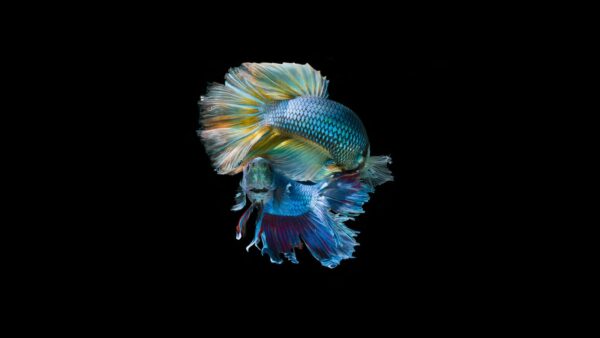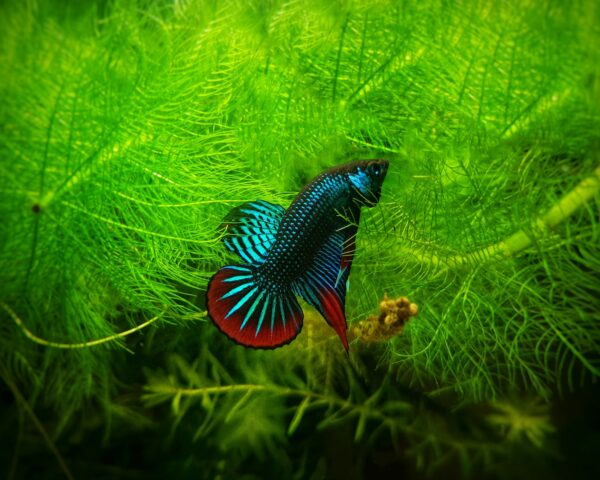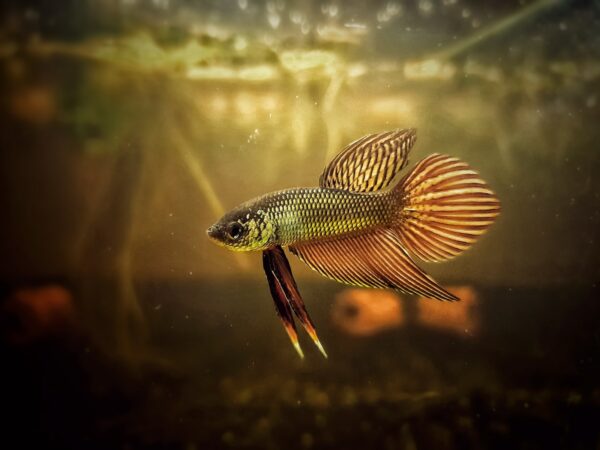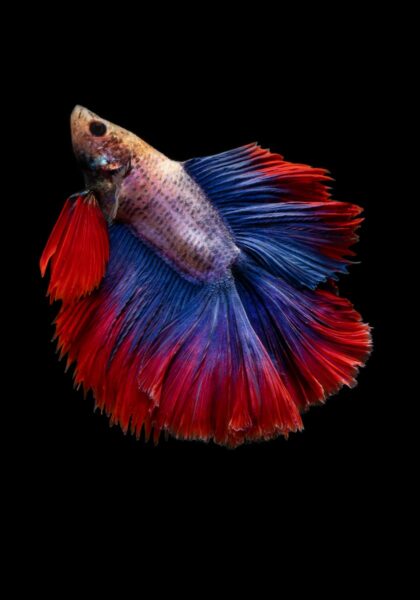Betta fish, also known as Siamese fighting fish, typically live for about 3 to 5 years on average. However, their lifespan can vary depending on several factors, including genetics, diet, water quality, and overall care.
In a well-maintained aquarium with the right conditions, it's not uncommon for betta fish to reach the upper end of this range, or occasionally even surpass it. To maximize the lifespan of a betta fish, it's important to provide:
- Clean, Warm Water: Betta fish thrive in water that's kept clean and at a stable temperature between 76 and 80 degrees Fahrenheit (24-27 degrees Celsius). Regular water changes and a good filtration system can help maintain water quality.
- Proper Diet: Feeding your betta a varied diet that includes high-quality betta pellets, as well as occasional treats like frozen or live brine shrimp or daphnia, can contribute to their health and longevity.
- Appropriate Tank Size and Environment: While bettas are often seen in small bowls, they do best in larger tanks (at least 5 gallons) with plenty of space to swim and places to hide. A well-decorated tank with plants and hiding spots can reduce stress and promote well-being.
- Regular Health Checks: Monitoring your betta for signs of illness and addressing any health issues promptly can also contribute to a longer life.
Remember, each betta fish is unique, and their lifespan can vary. Good care and attention can make a significant difference in ensuring a healthy and long life for your betta fish.
How to Keep Your Betta Fish Healthy
Keeping your Betta fish healthy is a top priority for any Betta owner. Ensure your Betta's well-being by providing a clean and adequately sized tank, maintaining stable water parameters, and offering a balanced diet. Regular observation and early intervention can help address health issues before they become severe.
Tips for Caring for Your Betta Fish
Caring for Betta fish requires attention to their specific needs. Tips include using an appropriate tank size, maintaining water quality, and providing proper nutrition. Additionally, offering your Betta a stimulating environment with decorations and live plants can promote their physical and mental health.
Betta Fish Have Short Lifespans
It's important to understand that Betta fish have relatively short lifespans, typically ranging from 2 to 5 years. Recognizing this fact can help you make the most of the time you have with your Betta and motivate you to provide the best care possible during their relatively brief lives.
Six Tips to Help Your Betta Live a Longer Life
While Betta fish have short lifespans, there are steps you can take to help extend their lives. These tips include selecting a healthy Betta from the start, providing a spacious tank with stable water conditions, maintaining the appropriate water temperature, offering a balanced diet, and creating a stimulating environment with plants and hiding spots.

Choose Wisely
When selecting a Betta fish, choose a healthy specimen with vibrant colors and intact fins. Avoid Betta fish that show signs of illness, such as lethargy, fin damage, or discoloration. Starting with a healthy Betta increases the likelihood of a longer and happier life for your pet.
Give Your Betta a Larger Tank
Betta fish are often kept in small bowls or containers, but they thrive in larger tanks. A tank with a minimum of 5 gallons provides more swimming space and allows for better water quality maintenance. A larger tank also allows you to incorporate a heater and filter, essential for Betta health.

Keep the Water Warm and Clean
Betta fish are tropical species and require a stable water temperature between 78 to 80 degrees Fahrenheit (25 to 27 degrees Celsius). Invest in a reliable aquarium heater to maintain the appropriate warmth. Additionally, regular water changes and the use of a gentle filter help keep the water clean and free of harmful substances.
Feed Your Betta Well
A well-balanced diet is crucial for Betta health. Feed your Betta a variety of high-quality Betta pellets or flakes and consider occasional treats like freeze-dried or live foods. Avoid overfeeding, as Betta fish are prone to obesity. Providing proper nutrition supports their overall well-being.


